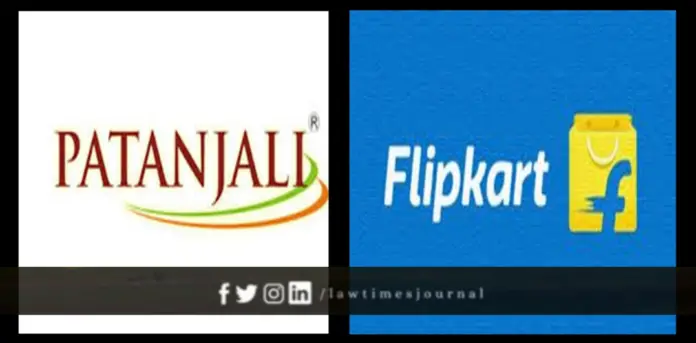
The Show-cause notices has issued for closure of operations to Flipkart & Patanjali, the Central Pollution Control Board (CPCB) has told the National Green Tribunal (NGT) as they are not registered with it. And, they have not replied to its communications on the matter.
In the report submitted to the NGT, the CPCB has mentioned that under Section 5 of the Environment (Protection) Act, 1986, the show cause notice has been issued to these companies on October 8, for closure of their operation and environment compensation for non-compliance of provisions of Plastic Waste Management (Amendment) Rules 2018.
The CPCB informed the NGT that four firms i.e., Hindustan Coca-cola Beverages Pvt. Ltd., Pepsico India Holding Pvt. Ltd., Bisleri International Pvt. Ltd., and Ms. Nourish Co. Beverages Ltd. are also registered with CPCB. But, they have not provided information for evidence based assessment of implementation of action plan for fulfilment of ‘Extended Producer Responsibility (EPR) liability’. And, the documents submitted by them have not been endorsed by state pollution control boards (SPCBs) so that the show cause notice has been issued to these firms as well.
Recently, the Amazon Seller Service Pvt. Ltd., Coca-Cola India Pvt. Ltd., Parle Agro Pvt. Ltd., Indian Railway Catering and Tourism Corp Ltd. have been granted registration by CPCB as Brand Owner/producer under Plastic Waste Management (PWM) Rules, 2018. It told the NGT that they are required to submit quarterly progress reports and comply with conditions stipulated in the registration certificate issued to them. However, the CPCB said it has held deliberations with expert agencies on the matter with regard to the tribunal’s direction on environmental audit of these firms.
Further, The CPCB said that, “Since, it will be for the first time that such an audit shall be conducted, a committee has been constituted to deliberate and suggest mechanism for conducting environmental audit as well as specify the agencies which can be engaged for such audits,”
Moreover, for the identification of the Brand owners/ producers who are operating without registration, the directions under Section 5 of Environment (Protection) Act, 1986 has been issued to all SPCBs and it is said to take action against the defaulting units as per provisions of PWM Rules, 2018 which may include closure of their operations, and levying Environmental Compensation.
The report submitted to NGT said: “Further, CPCB receives applications for registration under Rule 13(2) of PWM Rules. Applications are examined by CPCB and clarification/information, if any, are communicated to the applicants. However, many such applicants have not responded to CPCB’s queries”.
The NGT has also directed the CPCB to conduct environmental audit and recover fine from Amazon and Flipkart for violation of environmental norms. The green panel observed that the statutory regulators were not taking coercive measures, including invoking of principle of polluter-pays for enforcing the statutory norms against the e-commerce firms.
Earlier, the CPCB has told the NGT that e-commerce giants need to fulfil their extended producer responsibility under the PWM Rules and need to establish a system for collecting back the plastic waste generated due to the packaging of their products. It is also said that “Primary responsibility for collection of used multi-layered plastic sachet or pouches or packaging is of producers, importers and brand owners who introduce the products in the market.”
The submission came in response to a plea filed by a 16-year-old boy through his legal guardian, who has approached the tribunal to stop e-commerce giants Amazon and Flipkart from excessive plastic use in their packaging. In his plea, he contended that the companies deliver items in cardboard boxes, which are too large as compared to the size of the items being delivered. And, once goods are delivered, plastic waste is thrown away in the garbage and it ends up at landfill sites which lead to a burden on the earth and cause environmental damage.








